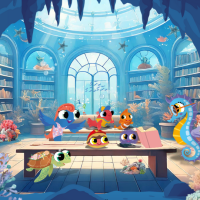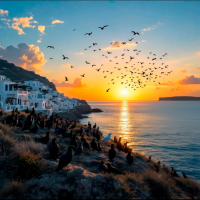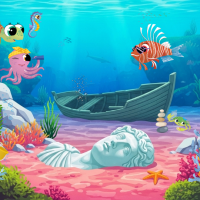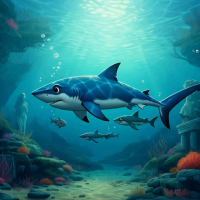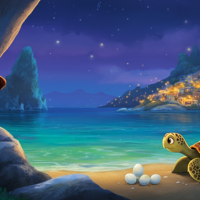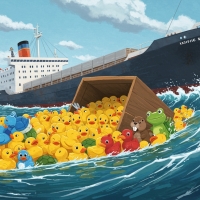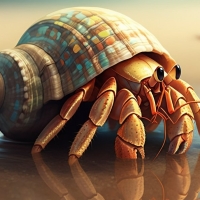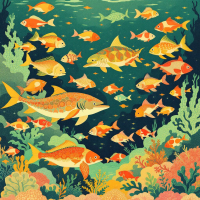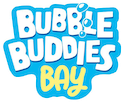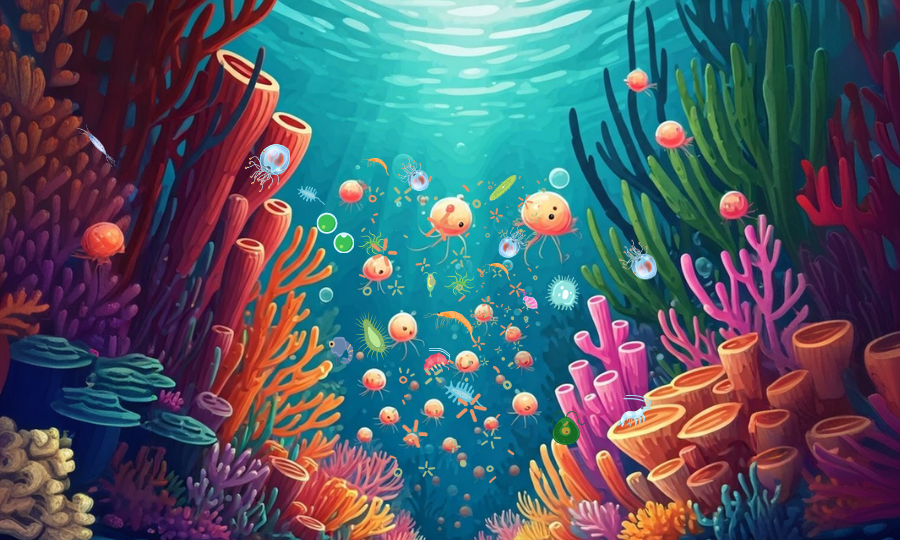
Plankton: Big, Small, and Totally Cool!
- Sophia's Blog
- Hits: 258
Hello, my fin-tastic friends! It’s me, Sofia the Seahorse, back with another ocean adventure. Today, we are talking about one of my favourite foods and one of the most important creatures in the entire ocean. Some are huge jellyfish, and most of them are so tiny they are invisible to your eyes, but they still do huge things for the planet. I’m talking about... PLANKTON!
Without them, there would be no colourful coral reefs, no playful porpoises, not even me! So let’s dive into their mysterious, magical world.
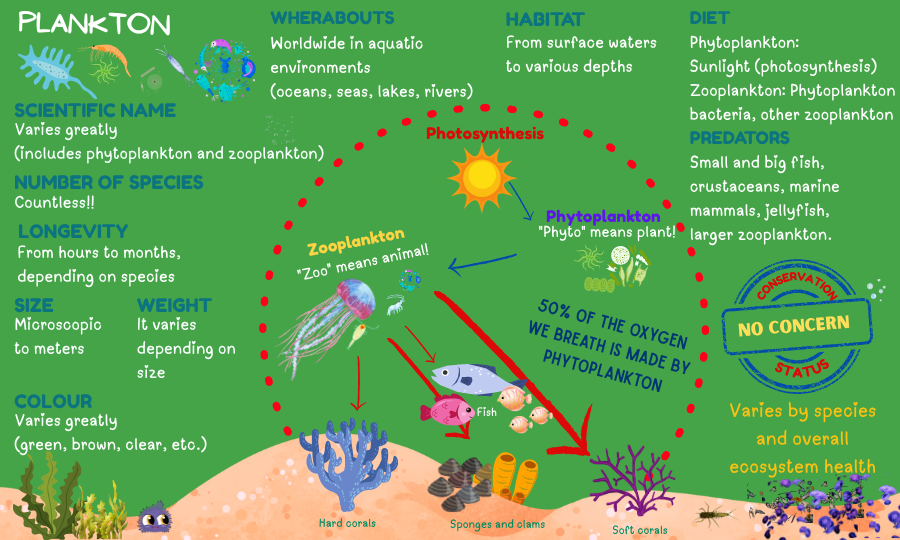
What is plankton?
Every drop of seawater in Bubble Buddies Bay (and everywhere else) has plankton in it. They’re not just food for sea fairies like me; they’re the very reason life in the ocean is possible at all.
Plankton isn’t just one type of creature; it’s a whole group of ocean drifters. Plankton are living things (big or small) that float or drift in the water because they can’t swim against the current. They go wherever the water takes them! Some are animals (called zooplankton), and some are more like plants (called phytoplankton).
Phytoplankton float near the ocean’s surface, soaking up sunlight and turning it into energy using something called photosynthesis, just like trees and flowers do on land!
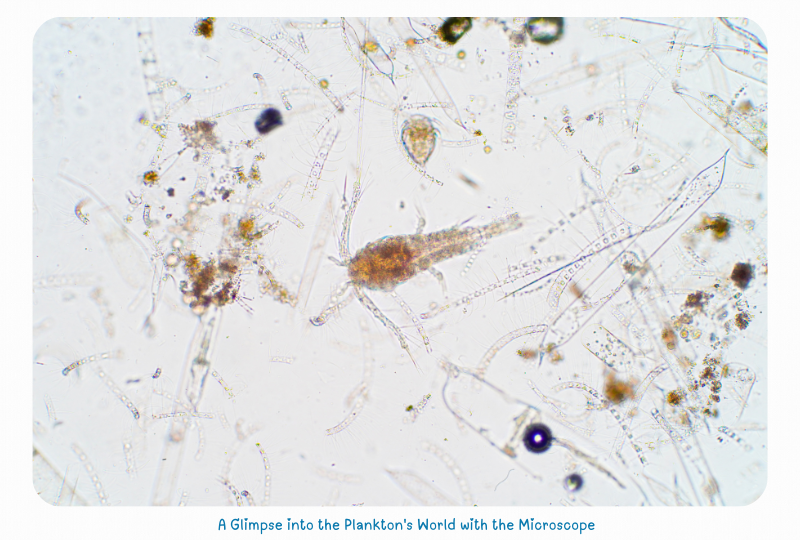
Listen carefully, because this is huge! Even though most of them are microscopic, phytoplankton make half the oxygen in Earth’s atmosphere. That means for every two breaths you take, one of them comes from these tiny ocean wonders. Isn’t that incredible? Take a deep breath right now and say, “Thank you, phytoplankton!”
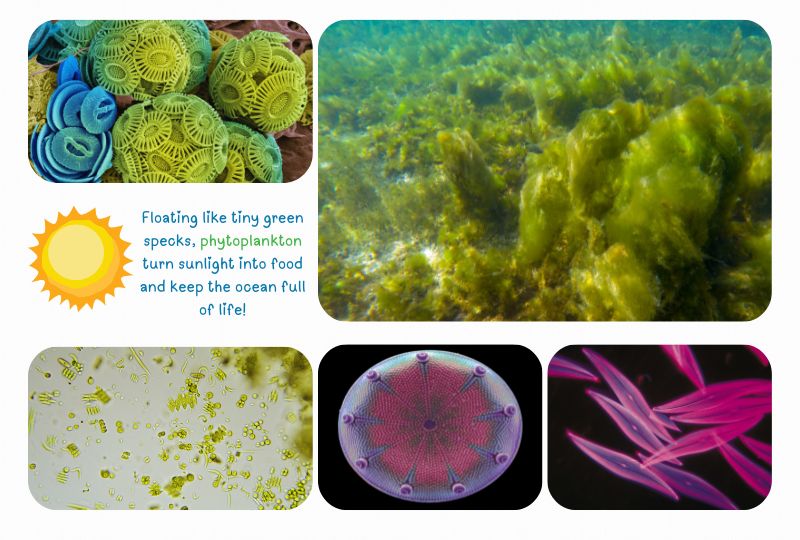
Why I love plankton
Okay, I love to nibble on plankton. So do other Bubble Buddies. Without plankton, none of us would have anything to eat. They’re at the very beginning of the ocean food chain, and they keep the entire ecosystem running smoothly. Even the biggest animals in the sea, like blue whales, depend on plankton. Isn’t that wild? Something so tiny feeding something so gigantic! But there’s even more magic.
The ocean’s climate helpers
Phytoplankton are also climate heroes. They soak up carbon dioxide from the air and trap it in their tiny bodies. Some of them sink to the deep ocean when they die, taking that carbon with them for a very long nap at the bottom of the sea. That helps cool down the planet and keeps our oceans from becoming too acidic. Scientists call this the biological pump, but I like to think of it as the ocean’s secret superpower.
The coolest part? Phytoplankton have been doing this for billions of years. Long before there were forests or flowers on land, they were already out there making oxygen and balancing Earth’s atmosphere.
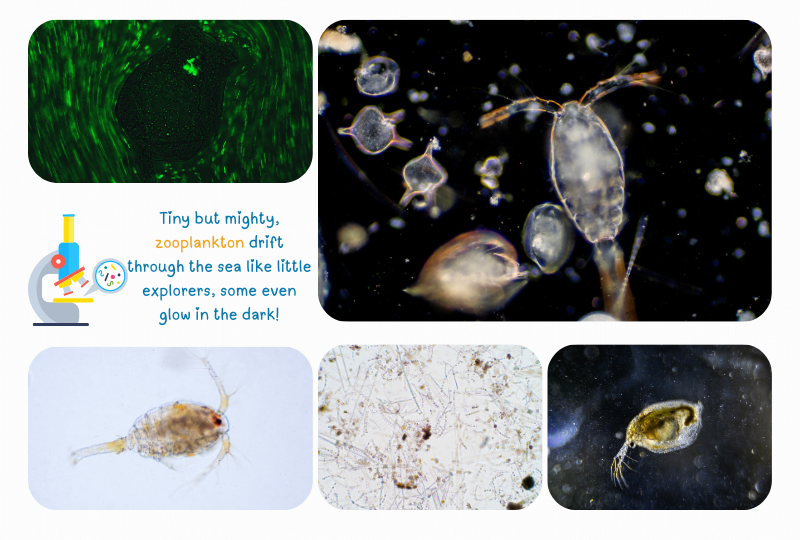
A colourful world from space
Want to know how scientists watch these tiny organisms? They use satellites in space! These satellites can “see” the green pigment in phytoplankton, called chlorophyll, and measure how much is floating near the ocean’s surface. It’s like colouring the ocean with a giant highlighter pen from the sky. Thanks to that space tech, we understand the importance of phytoplankton.
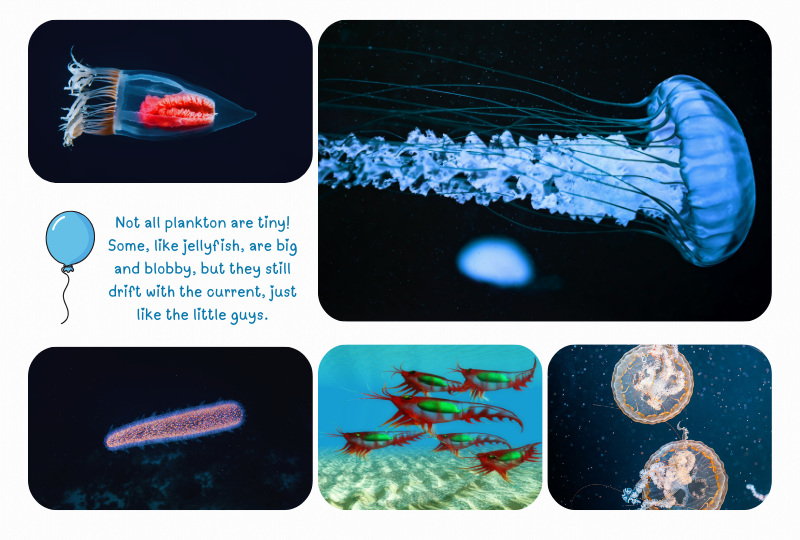
All Around Us!
The super-small, drifting bits of life are not just in the ocean, they are almost everywhere! You can find plankton swirling in rivers, lakes, and little ponds. Plus, there's even plankton hiding in super tiny drops of water on land, like in a damp patch of soil: these tiny creatures just wake up when it gets wet! So, whether you're by the sea, a lake, or just feeling a breeze, remember that plankton truly is all around us!
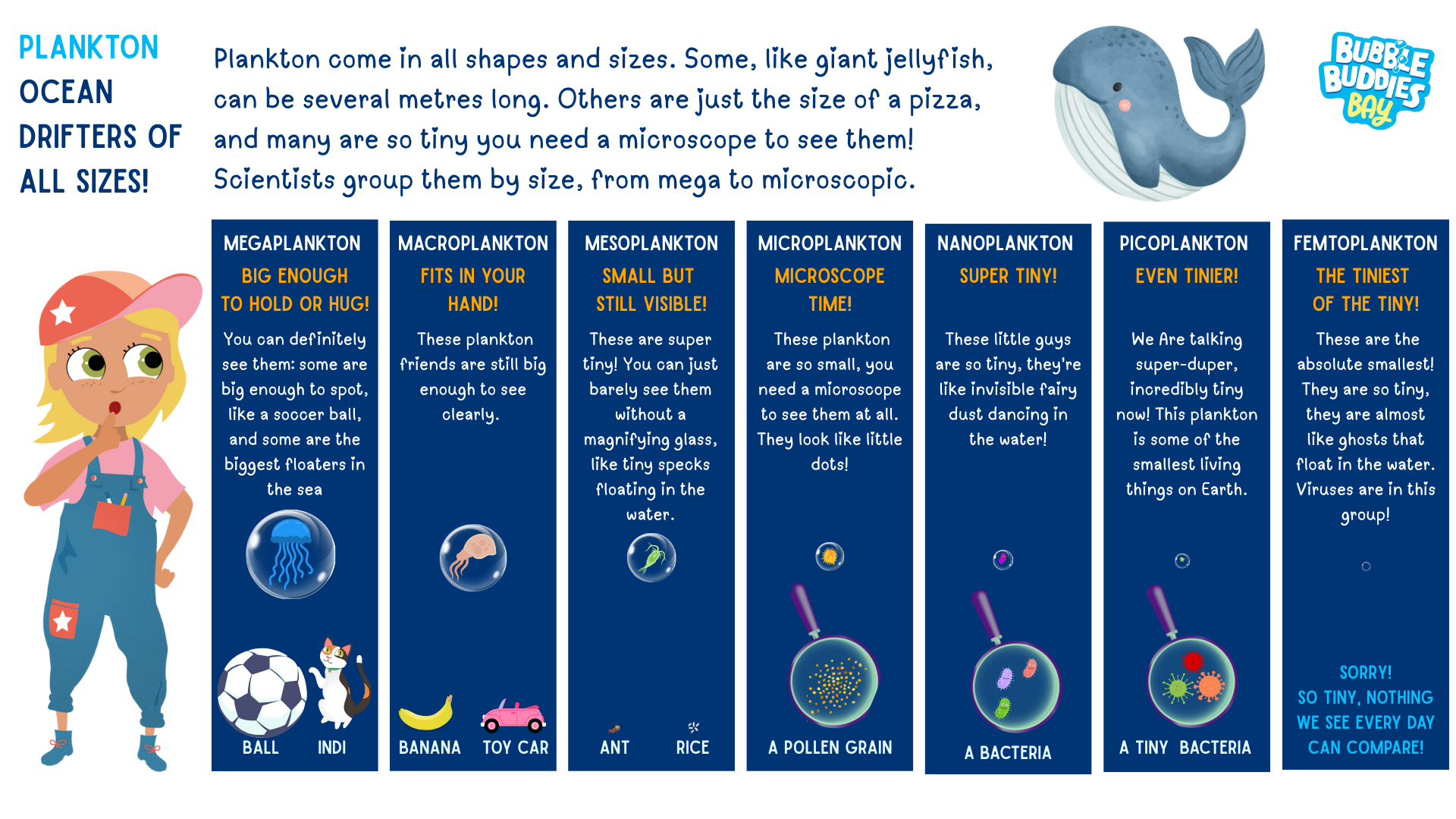
Big ones are easier, tiny ones are tricky!
It’s much easier for scientists to study big plankton like jellyfish and salp. But the tiny ones? They’re super hard to see and even harder to study! Even though we’ve learned a lot, there are still so many mysteries. Using cool tools like DNA tests and deep-sea robots, scientists are discovering thousands of new plankton species — some we didn’t even know existed just a few years ago! In one tiny bit of ocean, they found over 47,000 kinds of tiny creatures. Wow!
And guess what? Plankton might help us solve some gigantic problems! Maybe their special genes could help clean up oil spills or even make clean energy. Some scientists think protecting plankton could even help fight climate change. We’re just getting started on these exciting discoveries!
Trouble on the horizon?
Here’s the splash of sad news: as Earth gets warmer, the ocean’s surface gets warmer too. That makes it harder for the cold, nutrient-rich water below to mix with the top layers where plankton live. Less mixing means fewer nutrients — and less plankton. Less plankton means less food, less oxygen, and more carbon dioxide in the atmosphere — and that’s bad news for all living things, both in the ocean and on land.
Fortunately, scientists are working hard to understand what’s going on and find ways to help. And you can help too!
Some ocean-friendly adventures you can try at home or at school
🪼 Plankton jar experiment: Make your own “plankton soup”! Fill a jar with water and add glitter or tiny paper pieces. Shake it up and watch how they float and drift, just like real plankton in the sea.
🪼 Plankton safari: Grab a magnifying glass and a clear container of seawater. Can you spot anything drifting inside? Some of it might be plankton!
🪼 Ocean oxygen count: Go outside and take ten deep breaths. Now imagine five of those came from plankton. You can even draw or colour one plankton for every breath. That’s a lot of art!
🪼 Plankton parade: Create your own plankton creature using pipe cleaners, beads, or clay. Give it a name and decide: is it a phytoplankton (plant-like) or zooplankton (animal-like)? What does it eat? Does it glow in the dark like some of my favourite nighttime plankton pals?
🪼 Write a “thank you, plankton” poem: Celebrate the small but mighty by writing a poem to show your appreciation. Rhyming optional, love required.
And here’s one more idea for Bubble Buddies everywhere...
🪼 🪼 🪼 Host your own Plankton Day parade: Let’s celebrate Plankton and sea creatures with a costume parade, where everyone dresses as their favourite plankton species. Why not make a costume yourself? Send us the photos!
Next time you’re swimming, snorkelling, or even sipping a glass of water, think about the plankton drifting below the surface. They are working hard so we can all breathe easier.
Stay salty, stay silly, stay splendid!
Sophia the Seahorse

